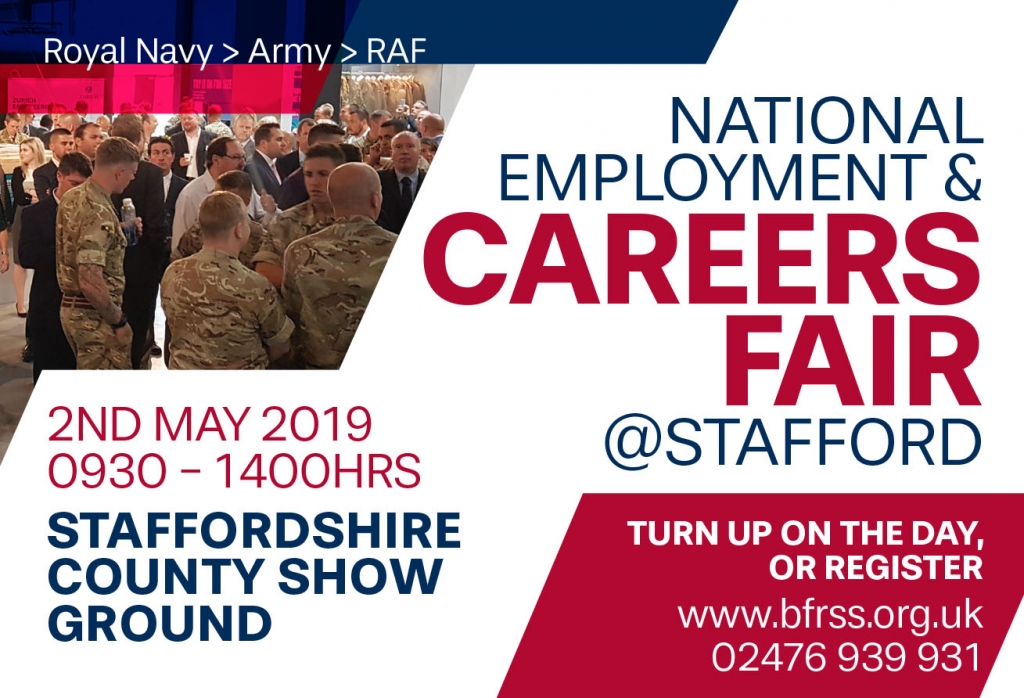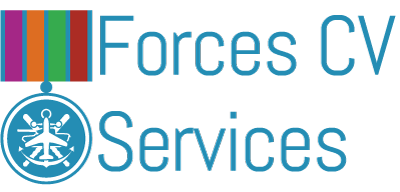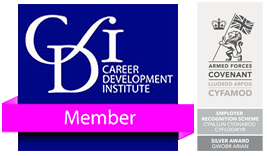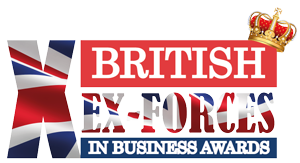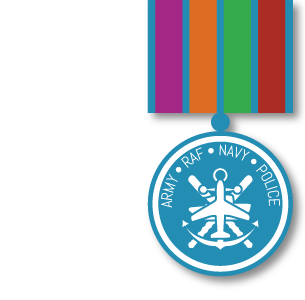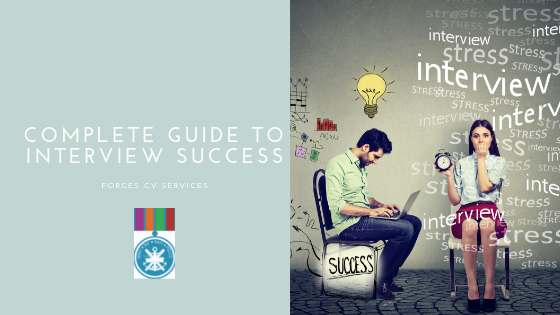
Forces CV Services
Your Complete Guide to a Successful Interview
Sian Richardson, Director of Forces CV Services, has a long and successful history of preparing candidates to fulfil their career ambitions. As a former HR Manager and Recruitment Specialist, she is a specialist in the field.
How you present yourself before, during and after interviews is crucial in determining whether or not you secure the job you want in Civvy Street. The objective of this guide is to provide some best practice advice and guidance on how to undertake a successful interview.
STEP 1 – PREPARATION
Preparation, Preparation, Preparation
I cannot stress strongly enough how important this step is. The more prepared you are before the interview, the more confident you will feel and the better you are likely to perform on the day itself.
Before the interview
- Check the exact time, location, route, transport options, parking and journey time
- Find out the interviewer’s name and title
- Research the company online or by talking to connections who work there – know the facts about its history, position in the market, mission, competitors, products, services, and any latest news or new contracts
- Understand the job they want you to do. I wish I had a pound for every candidate I’ve interviewed who did not understand the basic job requirements! Read the job description thoroughly, pick out key requirements and prepare strong examples of when you have delivered similar work in past roles. Remember to consider the results you achieved
- Prepare some questions to ask the interviewer. An interview is a two-way process. Use the opportunity to determine if the Company would be a good fit for you. Some questions you could ask are:
- Why has the position become available?
- How does the position fit into the company structure?
- What plans does the company have for future development?
- What motivated you to join the company?
- What training and development opportunities will be available?
Dress
Make a good impression. Dress like a professional. Wear a smart suit or matching trousers with blazer/jacket, a clean, ironed shirt and tie or blouse. Even if you think it may be company policy, avoid wearing casual clothes.
If applying for a manual job, still dress smartly and take a change of clothes with you in case you are asked to complete any technical work or tests.
Step 2 – The interview
First impressions count!
- Arrive a few minutes early, but not too early. Unless there has been a major disaster, arriving late for an interview is inexcusable.
Body Language & Interview Etiquette
- Smile and be friendly to everyone, from the receptionist to the CEO. You never know how influential they might be in the application process and it’s highly likely their opinion of you will be sought to see if they thing you’ll fit in.
- Shake hands firmly with the interviewer – but not too firmly! J
- Wait to be offered a chair before sitting
- Your job description may demand it and your CV may claim you have great interpersonal and communication skills – now is your chance to demonstrate them
- Build rapport with the interviewer – interviews are just two-way conversations
- Be a good listener as well as a good talker. Listen carefully to questions before giving your answer
- Smile and maintain eye contact – without looking like a crazy person! J
Marketing Brand You
- They wouldn’t be interviewing you if they didn’t think you were a strong contender, so be quietly confident
- Describe your achievements and how they apply to the role, in a clear and concise way
- Give specific examples of past situations or when you’ve demonstrated particular competencies.
Structure your answers. Use the STAR method:
S – Situation, background set the scene
T – Task or Target, specifics of what’s required, when, where, who
A – Action, what you did, skills used, behaviours, characteristics
R – Result – Outcome, what happened?
I also suggest to clients that they may like to strengthen their answers further by explaining what they learned, what they’d do differently next time, or how they followed up on the situation.
- Be prepared to answer non-competency based questions such as:
- Why did you choose this particular career path/field?
- Why would you like to work for this organisation?
- What style of management gets the best from you?
- What are your major strengths or weaknesses?
- What does ‘teamwork’ mean to you?
- Where do you see yourself in 5 years’ time?
